A list of external affiliates of the UCL Warning Research Centre.
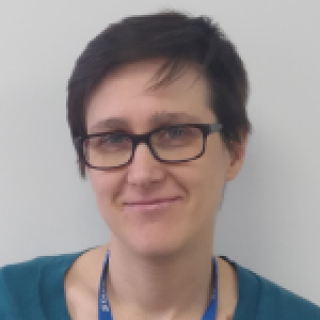 Sarah Brown | Thematic Lead Disaster Risk Reduction Sarah Brown is Thematic Lead for Disaster Risk Reduction for Practical Action, with over 15 years of experience in disaster risk reduction, adaptation, early warning, and conflict sensitivity across Asia, Africa, Latin America and the Caribbean. Her work at Practical Action focuses on disaster risk, early warning, improving decision making under complexity, end-mile communication, gender and inclusion. She is a Co-Investigator on the NERC/DFID LANDSLIP Project (research into practice on landslide early warning). She heads the Knowledge Broker (joint with Red Cross Climate Centre) for the DFID/NERC Science for Humanitarian Emergencies and Resilience (SHEAR) Programme, with a focus on forecasting and early warning. She was team leader on research on disaggregated impact data for UN Women and UNICEF, and also led research on gender transformative early warning systems. |
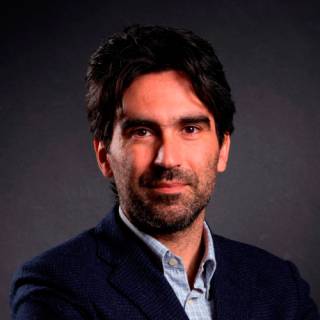 Michele Calvello | Associate Professor in Geotechnical Engineering Michele Calvello currently teaches “Soil mechanics” and “Landslide Risk” at the University of Salerno, Italy. His main research interests are focused on the analysis and management of landslide risk, both at slope and regional scales, with special attention devoted to the following inter-disciplinary topics: early warning systems for rainfall-induced landslides, landslide zoning, risk perception, risk education and community resilience. He is a founding member and President of LandAware – the international network on landslide early warning systems. He is the Coordinator of the LARAM School, an International School for PhD students on “LAndslide Risk Assessment and Mitigation”. He is Secretary of the Technical Committee TC-306 “Geo-Engineering Education” and member of the Technical Committees TC-304 “Engineering Practice of Risk Assessment and Management” and TC-309 “Machine Learning and Big Data” of the International Society of Soil Mechanics and Geotechnical Engineering. |
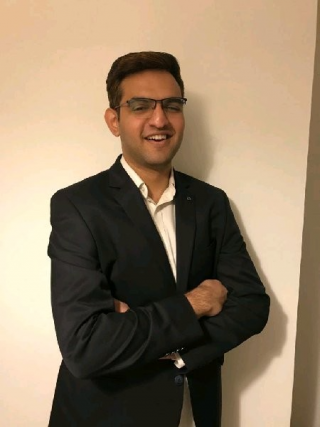 Shobhit Chepe | Consultant – Advocacy Coordinator, TROSA. Oxfam India Disasters researcher with an MSc in Disasters, adaptation and development. Currently working at Oxfam on the transboundary rivers of South Asia project. Profile / website: https://in.linkedin.com/in/shobhitchepe |
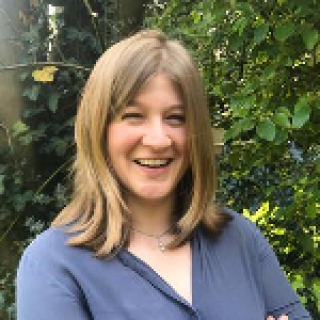 Sophie Dannreuther |
Sophie is the co-founder and director of a non-profit that connects policymakers to leading academics who work on some of the most important long-term challenges of our time. She is also a Research Affililate at Cambridge University's Centre for the Study of Existential Risk. Her interests include facilitating engagement with academics and govenment decision-makers; improving institutional decision-making and communicating extreme risks. Sophie has worked across seven government departments, most recently as a Strategy Consultant at the Cabinet Office and a Policy and Partnership Officer at the UK Department for International Development. Profile / website: https://www.cser.ac.uk/team/sophie-dannreuther/ |
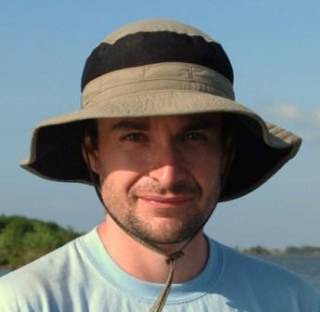 JC Gaillard | Professor of Geography JC is Professor of Geography at the University of Auckland. His work focuses on power and inclusion in disaster. It includes developing participatory tools for engaging minority groups in disaster risk reduction with an emphasis on ethnic and gender minorities, prisoners, children and homeless people. More details Profile / website: jcgaillard.wordpress.com/ |
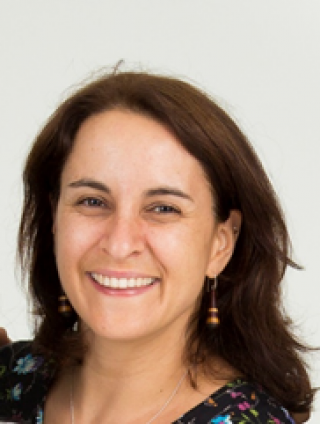 Carolina García-Londoño | A risk management scientist with interdisciplinary focus. She has participated in several interdisciplinary projects in both Latin America and Europe, involving both the academy and NGO’s. She is a Lecturer of different Universities, is a volunteer in different social and academic organizations and also works as a consultant on disaster risk reduction, sustainable development and climate change. Her aim is to integrate natural and social sciences to generate useful risk reduction products for multiple stakeholders. Profile / website: http://scienti.colciencias.gov.co:8081/cvlac/visualizador/generarCurriculoCv.do?cod_rh=0000218251 |
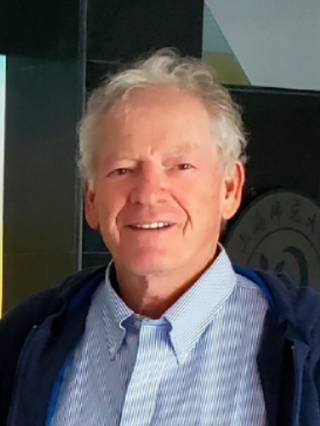 Dr. Michael H. Glantz (Mickey) mickeyglantz@hotmail.com (preferred); glantz@colorado.edu | Director of the Consortium for Capacity Building (CCB) Michael H. Glantz, Director of the CCB, earlier was a Senior Scientist at the National Center for Atmospheric Research (NCAR), where he served as the Head of the Environmental and Societal Impacts Group (ESIG). The author has been the only Senior Scientist from the social sciences in NCAR’s 50-year history. Until August 2008, he served as NCAR’s Director of the Center for Capacity Building, an innovative program focused on, but not limited to, undergraduate educators and students. His research and applications activities center on how climate, water, and weather affect society as well as how society affects climate. The author’s research relates to African drought and desertification; food production problems and prospects; societal impacts of climate anomalies related to El Niño and La Niña events, climate variability and change; to the development of methods of forecasting possible societal responses to the regional impacts of climate variability and change; and the use of climate-related information for economic development. He also has coordinated joint research in the Central Asian Republics of Uzbekistan and Turkmenistan. Dr. Glantz, who was honored with the United Nations Environment Program’s Global 500 Award in 1990, has authored or edited over 30 multidisciplinary books on climate and development- related issues. Profile / website: www.ccb-boulder.org |
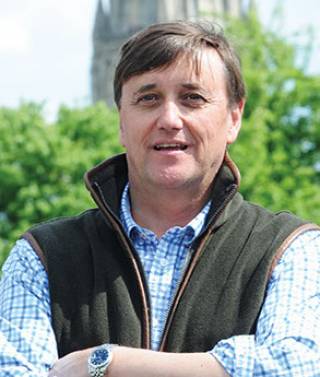 Richard Gordon MBE | Director, Disaster Management Centre, Bournemouth University After a successful career in the army during which he was awarded an MBE, Richard joined the Bournemouth University Disaster Management Centre (BUDMC) in 2002, becoming its Director in May 2005. Since then, the Disaster Management Centre has grown considerably, now employing six members of staff and six associate members. Richard’s experience covers the full spectrum of disaster management and he uses that experience to deliver innovative training and advice both in the United Kingdom and overseas, fusing best practice education, training, research and professional practice. His global experience spans the Middle East, West and West and North Africa, South and East Asia, Eastern Europe. South America and the Caribbean. He regularly delivers executive disaster management seminars to senior government ministers and their representatives, including key military appointments and overseas delegations. Working closely with Professor John Fletcher and Dr Yeganeh Morakabati of Bournemouth University, Richard pioneered new research and education into the integration of travel and tourism with disaster management. He successfully developed an MSc in Disaster Management which is currently delivered both run the UK and internationally via in-country Continuous Professional Development (CPD) courses supported by attractive online e-learning materials and seminars. He became a Fellow of the Institute of Civil Defence and Disaster Studies in 2005 and is a Founding Fellow of the Institute of Civil Protection and Emergency Management, currently holding the position of Vice Chair (External Affairs). Profile / website: www.budmc.uk |
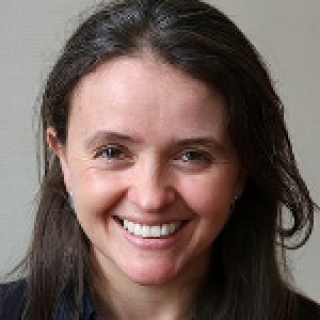 Catalina Jaime | Senior Risk Adviser at Red Cross Red Crescent Climate Centre Catalina coordinates the global strategic development of Forecast-based Financing as well as the technical support for the design and implementation of the global anticipatory funding mechanism of the IFRC, along with technical advice to Early Action projects at global level. Catalina is the knowledge manager of the Science for Humanitarian Emergencies & Resilience (SHEAR) programme and is currently PhD at the University of Twente on Early Warning and Early Action in conflict-affected settings. She has 16 years experience in the humanitarian sector. Her main areas of expertise are Disaster Risk Reduction, Climate Change Adaptation, Early Warning and Early Action. Her background is in Industrial Engineering with a Masters in International Humanitarian Action. Profile / website: www.climatecentre.org |
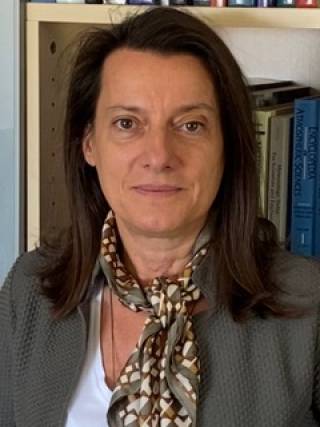 Dr. Vassiliki Kotroni | Research Director, National Observatory of Athens Bio: https://stratus.meteo.noa.gr/METEOunit/CVs/Kotroni_Vasiliki.pdf
|
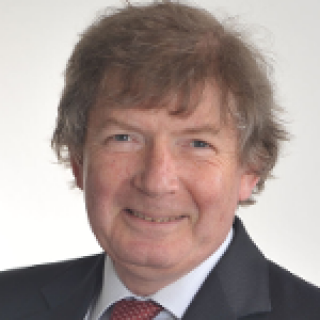 Andreas Nikolaus Küppers | Senior Advisor Updated bio to follow Profile / website: https://www.gfz-potsdam.de/en/home/ |
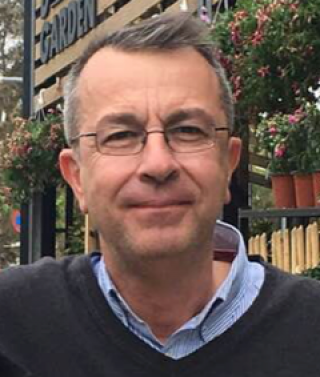 Dr. Konstantinos Lagouvardos | Research Director, National Observatory of Athens Bio: https://stratus.meteo.noa.gr/METEOunit/CVs/Lagouvardos_Konstantinos.pdf Profile / website: https://www.meteo.gr/meteogroup/index.cfm |
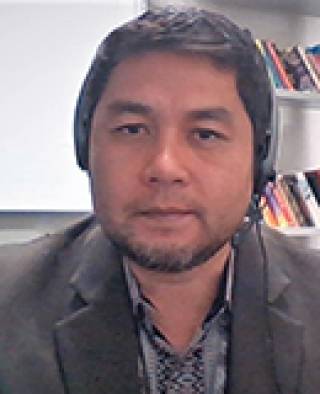 Dr. Jonatan A. Lassa | Senior Lecturer, Humanitarian, Emergency and Disaster Management Dr Jonatan Lassa is an interdisciplinary social scientist with an engineering background. He is currently a Senior Lecturer in Humanitarian, Emergency & Disaster Management at Charles Darwin University, Australia. He served as an adjunct fellow at RSIS, NTU, and Senior Fellow at Resilient Development Initiative and Institute of Resource Governance and Social Change in Indonesia. His research interest covers institutional and policy dimension of disaster and climate adaptation, mitigation, political will for resilience, early warning systems, recovery policy, disaster governance, food systems, complex network, humanitarian NGOs and human security. His area of interest includes, but is not limited to, Southeast Asia and Pacific Profile / website: http://indosasters.org/ |
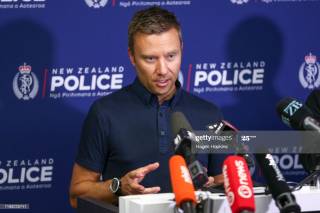 Graham S. Leonard | GNS Senior Scientist Graham is a Senior Scientist within the Earth Structure and Processes Department. His particular research interests are in developing effective response to warning systems, especially for volcanic, tsunami & landslide/debris-flow processes; quantifying/characterising & mitigating the impacts of natural hazard events; volcanic and tsunami mapping; New Zealand volcanic geology, stratigraphy and geochronology. Profile / website: https://g.co/kgs/YdGX9J |
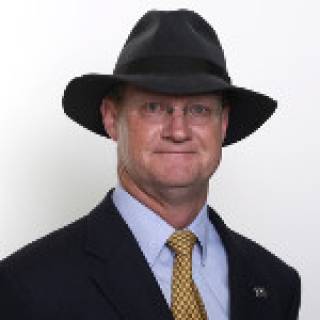 Ian Rodney Mannix APSM | Ian Mannix is a journalist with a special interest in emergency warnings. In 2002 he created "Emergency Broadcasting" at the Australian Broadcasting Corporation to issue warnings for emergency services during bushfires and floods in Victoria, Australia. Since then, he has refined the process in conjunction with emergency agencies, police and local government throughout Australia. He has coordinated warnings for floods, cyclones, bushfires; chemical spills; dam bursts; water contamination; equine flu; locust plague; severe weather and storm surge. He was awarded the Australian Public Service Medal for his work, and is a Fellow of Emergency Media and Public Affairs, Australia. Profile / website: www.forewarned.info |
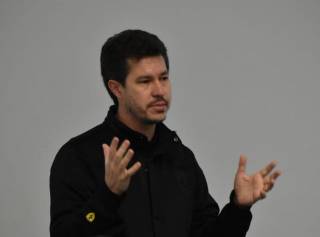 Victor Marchezini victor.marchezini@gmail.com ; victor.marchezini@cemaden.gov.br | PhD in Sociology Victor Marchezini has studied the sociology of disasters in Latin America and Caribbean since 2004 (https://victormarchezini.weebly.com/). He worked as disaster risk analyst in the monitoring room of the Brazilian Warning Center (Cemaden) (2012-2014). Since 2014 he has worked as researcher at Cemaden (http://www.cemaden.gov.br/author/victor/), bridging scientists, practitioners, communities and policymakers. One result of this collective effort was the free e-book entitled Reduction of Vulnerability to Disasters: From Knowledge to Action (https://preventionroutes.weebly.com/capiacutetuloschapters.html). Victor is also professor at the Doctorate Program on Earth System Science at the National Institute for Space Research (CCST/INPE), and at the Postgraduate Program on Disaster Science (ICT/UNESP). Twitter account: @VMarchezini. Profile / website: https://www.researchgate.net/profile/Victor_Marchezini2 |
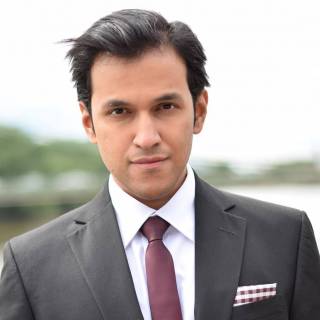 Dr Dwayne Ryan Menezes | Founder and Managing Director Dr Dwayne Ryan Menezes is the Founder and Managing Director of two London-based international think-tanks, Polar Research and Policy Initiative (PRPI) and Human Security Centre (HSC). While PRPI focuses on Arctic, Nordic, North Atlantic, North Pacific and Antarctic affairs, HSC is dedicated to addressing current and emerging threats to human security around the world. Dr Menezes is also a Founder and Partner of C Change Arctic, Greenland IceWater and High North Fisheries, three London-based, Arctic-focused firms that are engaged with infrastructure, ice and water, and fisheries respectively. In addition, he serves as the Vice-President of Arctic Today and an Advisory Board Member at JONAA Magazine, both Arctic media outlets. Over his policy career, he has also served as Consultant to the Secretary-General of the Commonwealth, Principal Consultant to the European Parliament Intergroup for the Freedom of Religion or Belief, Research Associate to a UN Special Rapporteur, Head of the Secretariat of the All-Party Parliamentary Group for Yemen in the UK Parliament and Researcher at the social policy think-tank ResPublica. Over his academic career, Dr Menezes read History at the LSE and the University of Cambridge, graduating from the latter with a PhD, and later pursued postdoctoral, associate or visiting fellowships at research centres at the Universities of Cambridge, Oxford and London. He is currently an Honorary Fellow of the UCL Institute for Risk and Disaster Reduction and an Associate Fellow at the Institute of Commonwealth Studies, University of London. He is also a Fellow of the Royal Historical Society, the Royal Geographical Society and the Royal Society of Arts, and the Associate Producer of four award-winning films. Profile / website: https://polarconnection.org/profile/dr-dwayne-ryan-menezes/ |
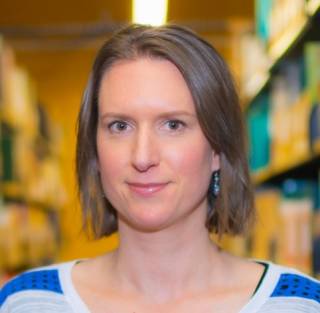 Dr Sally Potter | Senior Hazard & Risk Management Researcher, GNS Science, New Zealand Sally is a researcher in social science and natural hazards, specialising in the communication of warnings. Her research is regularly applied to improve forecasts and warnings in New Zealand. Examples include producing guidelines for writing short warning messages in 2018, which were subsequently used as a template for New Zealand’s Emergency Mobile Alerts, and her PhD research on New Zealand’s Volcanic Alert Level system resulted in a new version being implemented for all of NZ’s volcanoes in 2014. She works with hazard scientists to write aftershock and eruption forecasts for GeoNet, the monitoring project at GNS Science. She is the co-lead of the World Meteorological Organization’s High Impact Weather Communication Task Team, the co-lead of New Zealand’s Resilience Challenge Weather & Wildfire research programme; and on the International Working Group for Volcanic Alert Levels. In 2019 she received the Science New Zealand award for Early Career Researcher. Profile / website: www.linkedin.com/in/sally-potter |
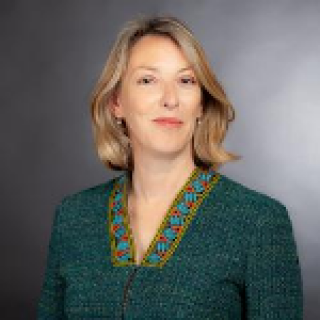 Suzanne Raine | Suzanne Raine is an Affiliate Lecturer at the Centre for Geopolitics at Cambridge University and a Visiting Professor in the Department of War Studies at KCL. Her areas of expertise are terrorism, risk management and warning and the role of assessment in government decision-making. She served for 24 years in the British Foreign and Commonwealth Office on foreign policy and national security issues. This included postings in Poland, Iraq and Pakistan. She specialised in counter-terrorism, holding a number of senior domestic appointments including Head of the Joint Terrorism Analysis Centre from 2015-2017. She is also a member of the Board of Trustees of the Imperial War Museum, the Royal United Services Institute (RUSI) and Stop The Traffik, an NGO which works to stop people-trafficking. Profile / website: https://www.cfg.polis.cam.ac.uk/directory/suzanne-raine |
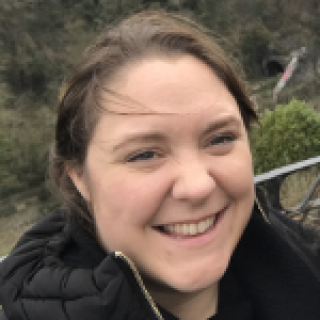 Dr Annie Winson | Title: Hazard and Vulnerability Specialist, British Geological Survey. Annie is a Hazard and Vulnerability Specialist at the British Geological Survey. She has a background in volcanology, specifically: hazard assessment, forecasting and early warning systems. Annie’s current work is focused on working with stakeholders in Tanzania, Nepal, Brazil and Colombia to develop and apply multi-hazard modelling frameworks. These frameworks integrate multi-hazard assessments with population and building exposure data derived from EO data and include an assessment of physical vulnerability of different building types. Annie is also working with partners on projects addressing: Equitable resilience, reducing disaster risk, early warnings and effective communication of hazard assessments. Along with Carina Fearnley and Sally Potter, Annie is a founder and co-chair of the World Organisation of Volcano Observatories Volcano Alert Level Working Group.
|
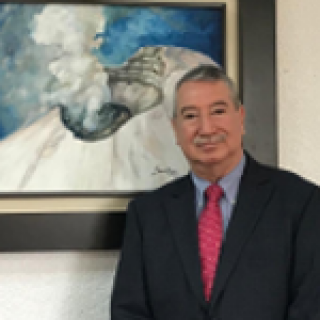 Carlos Miguel Valdés-González | Professor Professor at the Department of Seismology at the Institute of Geophysicis, National University of Mexico (UNAM). Currently in charge of the UNAMs office in Costa Rica. Seismologist, volcano seismologist, Risk Reduction of natural phenomenon and antrophogenic phenomenon. Former Director of the National Disaster Prevention Center of Mexico. Profile / website: http://www.fciencias.unam.mx/directorio/92479 |
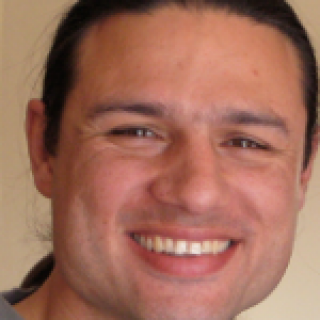 Dewald van Niekerk | Professor in Disaster Risk Reduction Dewald van Niekerk is Professor in Disaster Risk Reduction and the founder and head of the African Centre for Disaster Studies at North-West University, Potchefstroom Campus. Dewald is a South African C2 NRF graded researcher. He obtained his PhD in 2005 and was promoted to professor in 2012. He has authored and co-authored more than 100 publications which includes peer reviewed articles, books and chapters in books and international and national research reports. He has been project leader for local, national as well as international disaster risk reduction projects, and has undertaken disaster risk reduction research and consultancy in numerous countries world-wide. He is the programme manager for the Disaster Risk Sciences research group of the Unit for Environmental Sciences and Management. He is the founder and Editor in Chief of the accredited journal Jàmbá: Journal of Disaster Risk Studies. In 2012 he played a significant role in the establishment of the Southern Africa Society for Disaster Reduction. His research is motivated by a desire to reduce the possible impacts of natural hazards and unknowns like climate change on communities most at-risk. His interests include resilience building, community based disaster risk management, disaster risk assessment, disaster risk governance, building institutional capacities for disaster risk reduction, and transdisciplinary disaster risk reduction. Profile / website: www.acds.co.za |
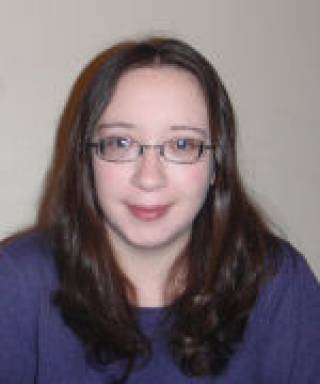 Amy Donovan | Interdisciplinary geographer working on the socio-physical dynamics of disaster risk, particularly in volcanic areas. Profile / website: www.imaginingrisk.com |
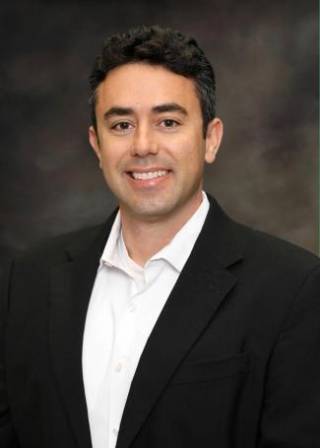 Hamilton Bean
| Hamilton Bean, Ph.D., MBA, APR, is Associate Professor in the Department of Communication at the University of Colorado Denver. He also serves as Director of the University of Colorado Denver’s International Studies Program. He specializes in the study of communication and security. His research has been published in numerous international academic journals and edited volumes, and he has won multiple awards for scholarship from the National Communication Association. He has earned research grants from the U.S. Federal Emergency Management Agency, U.S. Department of Homeland Security, U.S. National Oceanic and Atmospheric Administration, and the Japan Foundation’s Center for Global Partnership. He is a member of seven editorial boards for top journals across multiple fields. In 2021, he served as a Visiting Professor at Kyoto University’s Disaster Prevention Research Institute (DPRI) where he investigated mobile public alert and warning developments in Japan and globally. Profile / website: https://clas.ucdenver.edu/communication/hamilton-bean-phd
|
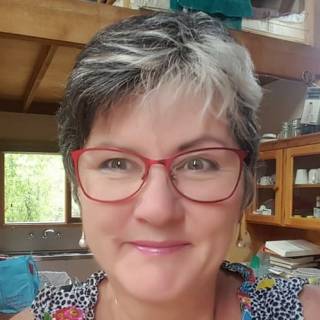 Brenda Mackie | Dr Brenda Mackie is a disaster sociologist with a deep interest in understanding decision-making under stress and public response to severe weather and disaster warnings. Her PhD from the University of Canterbury, NZ, explored the phenomena of warning fatigue, concluding that, far from being one of the disaster myths, it is contextual and a combination of over-warning, false alarms, scepticism, helplessness and trust.
Brenda's research continues to focus on the challenges of risk communication, effective warning messaging including issues of uncertainty and how to warn for compound and complex disasters Profile / website: https://www.linkedin.com/in/dr-brenda-mackie-a8598617/
|
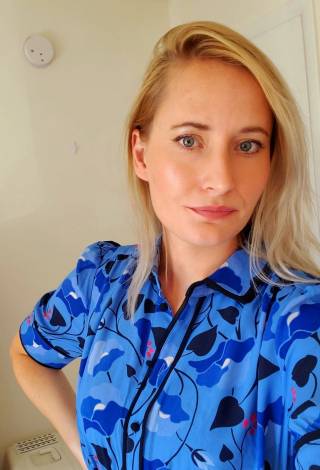 Sarah E. DeYoung | Sarah DeYoung is a community psychologist by training. She is a core faculty member of the Disaster Research Center and the Department of Sociology and Criminal Justice at the University of Delaware (United States). She is an expert in evacuation decision-making, maternal and infant well-being in emergencies, management of companion animals in disasters, and the study of community-based groups providing services to vulnerable populations such as refugees and precariously housed people.
Profile / website: https://www.researchgate.net/profile/Sarah-Deyoung |
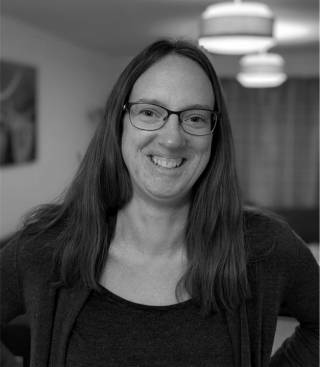 Linda Speight linda.speight@ouce.ox.ac.uk | Linda Speight is a hydrometeorologist whose research seeks to develop early warning systems to improve disaster risk management, particularly for flooding. She is interested in global flood forecasting, surface water flood forecasting, ensemble forecasts, impact-based forecasts, risk communication, decision making and climate resilience. Linda joined the University of Oxford in 2021, moving from the University of Reading where she was a postdoctoral researcher. Prior to joining the University of Reading, Linda was a Senior Scientist at the Scottish Environment Protection Agency (SEPA) where she was involved in operational flood forecasting and led the scientific development of the Scottish Flood Forecasting Service. Linda has a BSc from the University of Bristol (2005) and an MSc from Newcastle University (2006). Her PhD research, completed at the University of Newcastle in 2013, sought to develop a methodology for understanding dependencies in flood risk exposure in the UK. Linda has also held associate lecturing positions at the University of Lincoln and the University of Portsmouth. She started her career as a flood risk analyst at JBA Consulting. Profile / website: https://www.geog.ox.ac.uk/staff/lspeight.html |
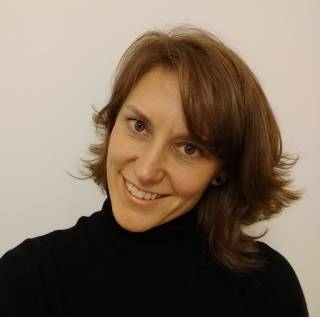 Lisa Robinson
| Lisa advises on media and communication strategies for mass audiences, particularly towards disaster risk reduction and emergency response. She works across disciplines to understand the needs of people at risk and to inform media and communication that prompts dialogue and risk-informed decision making at multiple levels of society. She has contributed to the work of leaders in the sector such as UNDRR, WHO, the World Bank’s GFDRR and others. In the humanitarian sector, she supports local media and first responders to prepare to communicate effectively with people affected by crisis and she has led a number of humanitarian communication responses. Lisa co-founded the Communication with Disaster Affected Communities (CDAC) Network. She studied Global Media and Communication at the London School of Economics (LSE) and the USC Annenberg School for Communication. She teaches courses on media and social and behaviour change for USC Annenberg.
|
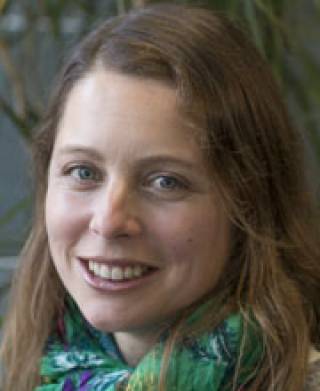 Hannah Cloke | Prof. Dr Hannah L. Cloke OBE is a physical geographer, natural hazards researcher, climate scientist and hydrologist specialising in earth system modelling, flood forecasting, catchment hydrology, applications of Numerical Weather Predictions and science communication. She leads a wide programme of research on the theoretical and practical development of early warning systems for natural hazards, particularly for floods, droughts, heatwaves and disaster risk management. Profile / website: https://www.reading.ac.uk/h-l-cloke.aspx
|
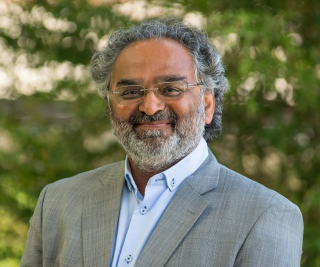 Asim Zia | Professor of Public Policy and Computer Science, University of Vermont Asim Zia's research, teaching and outreach activities focus on advancing the sustainability and resilience of integrated socio-environmental systems. He has led NSF, USDA and McArthur foundation funded Team Science projects aimed at developing computational models of Social Ecological Systems, Complex Adaptive Systems and Coupled Natural and Human Systems. Foresight generated from these computational models is used widely to enable early warnings of systemic risks, design early actions and anticipatory policies, configure governance systems and implement adaptive management. Asim Zia is serving as a Professor of Public Policy and Computer Science in the Department of Community Development and Applied Economics, with a secondary appointment in the Department of Computer Science, at the University of Vermont (UVM). He is Director of the Institute for Environmental Diplomacy and Security (IEDS) and a founding Co-Director of the Social Ecological Gaming and Simulation (SEGS) lab at the UVM. Profile / website: https://www.uvm.edu/cals/cdae/profiles/asim_zia
|
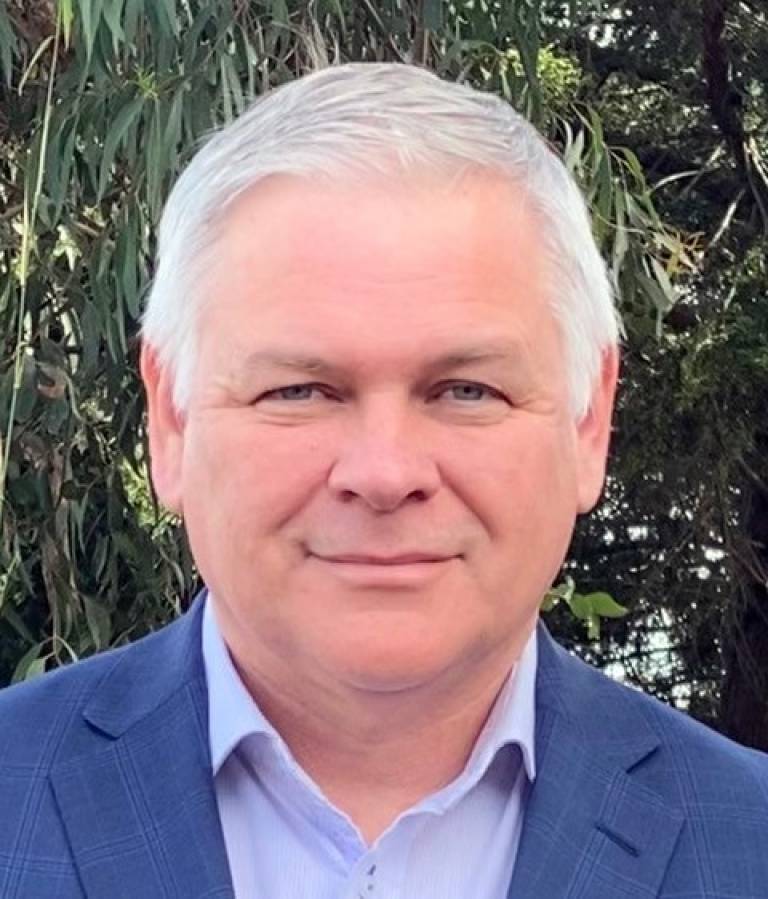 Andrew Tupper | Principal Consultant, Natural Hazards Consulting Andrew is a meteorologist with extensive experience in natural hazard warnings. His career roles include thirteen years in senior leadership positions for the Australian Bureau of Meteorology, including the Bureau’s Northern Territory Manager, the head of the National Operations Centre (where he was also the co-director of Australia’s Joint Australian Tsunami Warning Centre), and the Victorian State Manager. He was also the inaugural Chair of the Northern Territory Environment Protection Authority. As a volcanic clouds specialist, he has played a large part in the development of the International Airways Volcano Watch, and earlier in his career was the first full-time manager of the Darwin Volcanic Ash Advisory Centre. Andrew has managed the operational warnings strategy for numerous tropical cyclone, flood, severe thunderstorm, volcanic eruption, tsunami, and bushfire events through his career. His current focus as an independent consultant is in improving multi-hazard early warning systems, at the international, regional, national and local levels. He is particularly interested in bridging operational gaps between disciplines, and doing so on a sustainable, long-term basis. Profile / website: https://naturalhazardsconsulting.com/ |
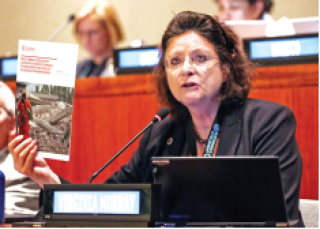 Professor Virginia Murray | Head of Global Disaster Risk Reduction, UK Health Security Agency Virginia Murray is a public health doctor committed to improving health emergency and disaster risk management. She was appointed as Head of Global Disaster Risk Reduction for UK Health Security Agency (formerly Public Health England) in April 2014. She is a member of the Integrated Research on Disaster Risk (IRDR) scientific committee and Co-Chair of IRDR’s Disaster Loss Data (DATA) and is currently the Chair of the UNDRR/ISC Hazard Classification and Review Technical Working Group, with the report published in 2020 and the UNDRR-ISC Hazard Information Profiles: Supplement in 2021. She is co-chair of the WHO Thematic Platform Health and Disaster Risk Management Research Network, and by working in collaboration with this network, she is one of the editors of the WHO Guidance on Research Methods for Health and Disaster Risk Management, published in October 2021. She is a member of CODATA Executive Committee and a member of the UNSDSN TReNDS network. She is a visiting/honorary Professor and fellow at several universities. Profile/Website: Virginia Murray — UK Health Security Agency (ukhsa.gov.uk) |
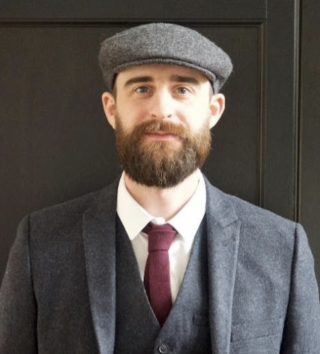 Ross Thompson | Ross is a Principal Environmental Public Health Scientist within the Extreme Events and Health Protection (EEHP) team at UK Health Security Agency, who are the operational leads for the Heatwave and Cold Weather Plans for England and the underpinning Heat-Health/Cold Weather Alerting systems. Ross has been involved in the planning for and responding to extreme temperature events for over seven years and is leading a piece of work on moving England’s Heat-Health and Cold Weather Alerting systems towards impact-based alerting in collaboration with the Met Office. Ross is also currently undertaking a PhD at the London School of Hygiene and Tropical Medicine looking at individual level risk modifying factors during periods of high temperature. Profile/Website: https://www.linkedin.com/in/ross-thompson-815b8b94/ |
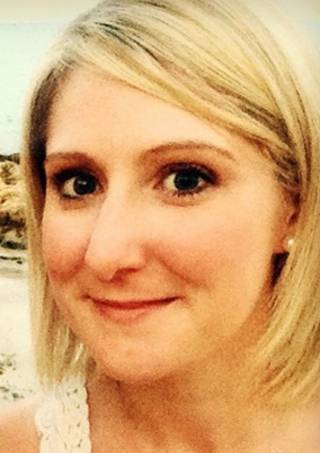 | Lecturer in Applied Decision Making – Uni. Of Leeds & Social Scientist – Met Office I am an interdisciplinary researcher investigating how people understand, communicate and make decisions concerning risk and uncertainty across a variety of contexts, including natural hazards, food safety and medicine. Using a variety of social science methods, I am interested in exploring how such communications can be improved to guide decision-making. I hold a joint position between the Centre for Decision Research and the Met Office, where I am applying techniques and insights from social science to deliver high impact decision research in areas related to weather and climate. Profile/Website: https://business.leeds.ac.uk/staff/1803/dr-sarah-jenkins |
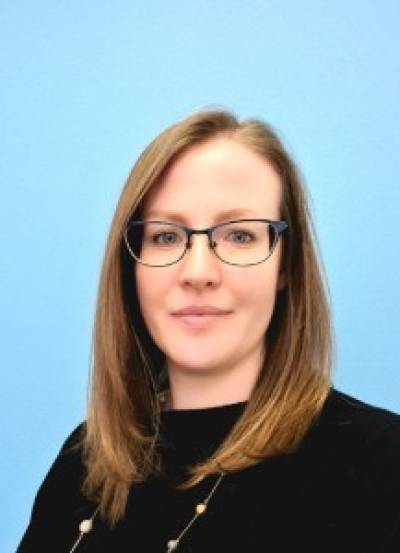 | Senior Climate and Resilience Expert Dr Mirianna Budimir is the Senior Climate and Resilience Expert in the Impact, Influence and Innovation team at Practical Action. Her work at Practical Action focuses on disaster risk reduction, early warning systems, gender, equity and social inequalities, science and risk communication, forecast-based early action and decision making, and international development. She has over thirteen years of disaster risk reduction research experience. She holds a Doctor of Philosophy degree on the topic of cascading multi-hazards and risk and an MSc in the Science of Natural Hazards, with a dissertation on urban flood modelling. She has significant experience of qualitative and quantitative research and analysis, excellent communication skills, and is practised at working within and leading interdisciplinary teams. She works closely with UK academics and in-country stakeholders to ensure research is useful, usable, and used. Profile/website: https://www.linkedin.com/in/mirianna-budimir/ |
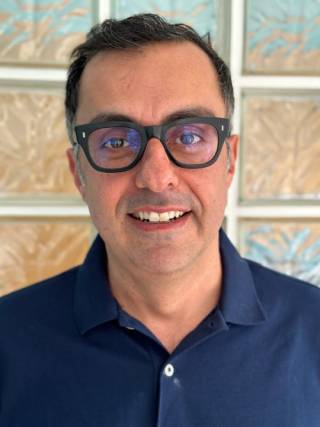
| Reader in Geography and Internation Development Pedram is a Reader in Geography and International Development at the University of Sussex where he works on interdisciplinary projects to better understand the drivers of global land use and land cover change and their impacts on society and the planet. One particular aspect of my research focuses on developing novel approaches to forecast the condition of vegetation using satellite-based earth observation data and to work with relevant users to identify appropriate and effective early actions in order to mitigate the impacts of drought in East Africa. Profile/website: https://profiles.sussex.ac.uk/p267938-pedram-rowhani/about |
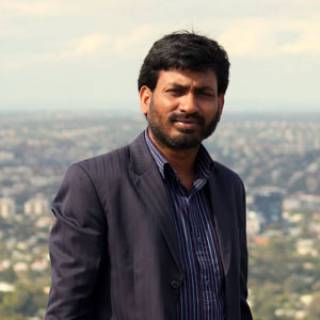 | Dr Sebak Kumar Saha is Professor of Sociology at Shahjalal University of Science and Technology (SUST), Bangladesh. He holds a Bachelor's and a Master's in Sociology from Shahjalal University of Science and Technology (SUST), a Graduate Diploma and a Master's in Environmental Management and Development, and a PhD (Anthropology) from the Australian National University (ANU). His current research interests revolve around social vulnerability and resilience, social capital and post-disaster response and recovery, post-disaster operations of government and NGOs, post-disaster housing assistance, disaster risk reduction, climate change adaptation, cyclone early warning systems and the response of the people at risk, displacement and migration following extreme events, gender and disasters, coastal management, and environmental resource management. Profile/website: https://www.sust.edu/d/soc/faculty-profile-detail/476/26 |
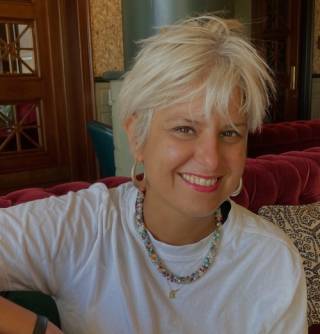 Dr Francesca Laura Cavallo | Dr Francesca Laura Cavallo is a curator, art historian, and interdisciplinary researcher whose work focuses on the intersection between creativity and the activation, management, and perception of risk. Placing the imagination at the centre of risk studies, she is interested in the question of whether art can provide a safe space to cultivate positive risk-taking and social resilience. Dr Cavallo is researching Sirens and Warnings as a part of the AHRC project Preemptive Listening (led by Aura Satz) at the Royal College of Art, where she teaches various interdisciplinary courses. This project continues her long-term curatorial and academic work on pre-emption, preparedness, and pre-enactment, including her PhD 'The Aesthetics of Risk' (Kent University 2020). She has dedicated the past ten years to creating platforms where artists, the public and researchers can interrogate risk and its' aesthetic dimension through exhibitions, workshops, and performances. This has led her practice toward co-creation with affected communities and facilitating platforms for Indigenous perspectives within Brazil Footprint's festival's three editions in partnership with the Barbican Centre, the Science and Industry Museum and the British Museum. Profile/website: https://www.francescalauracavallo.com, https://www.rca.ac.uk/more/staff/francesca-laura-cavallo/ |
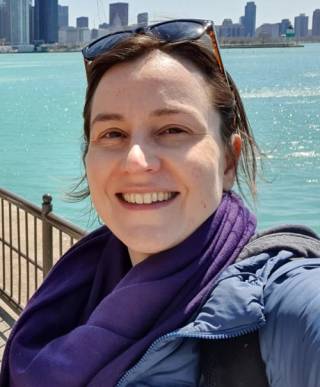 Anna Rom | Senior Technical Officer Disaster Risk Reduction UKHSA Anna Rom is Senior Technical Officer for Disaster Risk Reduction in UKHSA Global Health, Advisory, Science and Partnerships (GHASP) Team. She has been working for 15 years as an NHS GP, and in the last 8 years has also been working for the UK Government providing healthcare and advice to UK government staff based overseas. She has undertaken a Masters in Global Health and Development at UCL, completing her dissertation in Disaster Risk Reduction, focusing on International Search and Rescue after earthquake disasters. |
 Close
Close

